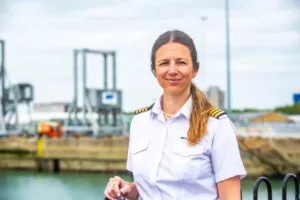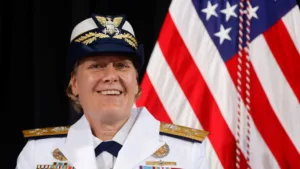Role of Coastguards
There is no consensus on the missions and organizational structure of coast guards around the world. Mostly coastguards are administratively deployed under civilian control with the purpose to maintain order at sea, ensure safety, prevent illegal fishing and protect the environment. In most countries for recruitment and training purposes the personnel or recruits undergo military training to mould them into a unified yet essentially civilian force which regularly interacts with the local and fishing community. Maritime forces cover coastal states’ jurisdiction over a wide area of the sea under the United Nations Convention on the Law of the Sea.Piracy, drug and cocaine smuggling and refugees at sea is usually within the domain of maritime security. Yet the disadvantage of having military personnel on boats is that they will be required to adduce evidence in trial court proceedings and as they are on duty for limited periods such personnel are not available nor trained to adduce evidence in court.
Civilian control of Coast Guard
 Credit ;HM Coastguard
Credit ;HM Coastguard
The French have the Maritime Gendermerie which is essentially a paramilitary police force under the operational control of the French Navy being an exception rather than the rule. India maritime zones are divided into five Coast Guard regions under civilian administration. The United Kingdom’s Coast Guard is a civilian organisation whose primary role is restricted to search and rescue operations. The HM Coastguard is the UK’s national maritime emergency service and has almost 600 female rescue officers serving in it. The HM Coastguard is a civilian and not a military agency being an integral component of the Maritime and Coastguard Agency (MCA) . The United Kingdom’s Coast Guard has around 3,500 coastguard rescue officers , many volunteers , along the coast who are imparted training in search and rescue skills. Canadian Coast Guard owns and operates the Federal government’s civilian fleet and is responsible for enabling of key maritime services to Canadians.
Lethal Force Exercised by Coastguards
What sets China’s coast guard apart from its counterparts in Southeast Asia ,with the exception of Vietnam which has a troubled history of violence, is China’s ensuring that military not civilian authorities exercise administrative control over the coast guards.China and several countries have sovereignty disputes in the Asia-Pacific waters .This change in administration or subordination under the military may place the PLA Navy directly in conflict with other navies which is obviously fraught with dangerous consequences and any encounter may spark off a war.The history of China’s coast guard is replete with a struggle for control between civilian and military command that was never fully settled setting the stage for the latest military consolidation ostensibly under the pretext of sovereignty . The Chinese Coastguard after the change in its administration from civilian to military has shifted from a multi mission approach to a lethal assignment which does not augur well for the security of the Pacific Ocean.
Paradox of US Coastguard
The mandate of the United States Coast Guard is to protect U.S. waterways, ports and shorelines by enforcing U.S. laws and serving as a first responder at sea. In the US Coastguard usually direct recruitment and training in US is carried out in a military academy. The US Navy core training of sailors is geared towards developing and nurturing a skill set designed to defend against external hostile navies.On the other hand the US Navy imparts training to Coast Guard recruits primarily in areas such as fisheries management, drug enforcement and safety and rescue missions which have altogether different connotations and requirements and is more about dealing diplomatically and engaging with local communities. Unlike other military services which operate large government housing tracts on military bases to save unnecessary expense most US Coast Guard officers reside and blend amongst the local community .
Trump to Revamp US Coastguard
 Credit;CNN
Credit;CNN
The US Department of Homeland Security disclosed that U.S. Coast Guard Commandant Admiral Linda Lee Fagan, the first female uniformed leader of an armed forces branch , was relieved citing ” deficiencies, operational failures, and inability to advance the strategic objectives of the U.S. Coast Guard ” . The Secretary of Homeland Security Kristi Noem embarked on a revamp of the U.S. Coast Guard’s management structure. The U.S. Army, Navy and Air Force have civilian service secretaries .The US Coast Guard an integral part of the U.S. armed forces by statute, under the administrative control of the Department of Homeland Security does not however have its own secretary and is led by a uniformed officer. The Secretary of Homeland Security has launched the USCG service’s strategic plan, Force Design 2028, essentially to revamp its organisational structure and a bill has been introduced by oversight committee leaders in the House. In contracting, the service secretary would have final authority over acquisitions, and the Coast Guard would take a more disciplined approach to the requirements process plagued with cost increases and delays in shipbuilding programs. The Force Design 2028 aims to reduce the ranks of USCG flag officers by one-quarter or about 12 positions. and reportedly the Secretary of Homeland Security has cancelled all six planned promotions for new one-star admirals proposed this year. The USCG manpower gap is planned to be complemented through new incentives and policies for recruitment with the intent to expand its military workforce by 15,000 members by the end of the financial year 2028 in order to reinvigorate the Coast Guard or risk strategic failure.
Cyber Command
The Force Design 2028 strategic plan seeks to strengthen the Coast Guard Cyber Command as well as investing in “Coastal Sentinel,” an AI-driven sensor network to detect threats, advanced technological and digitised systems for vessel registration and mariner credentialing .
Author ; Nadir Mumtaz
Trademark Blue Economy IPO-PK

Blue Economy (Services) (Pvt.) Limited
website ; blueeconomynews.com
Credit ;
https://edition.cnn.com/2025/01/21/politics/trump-admin-removes-coast-guard-leader
https://www.hmcoastguard.uk/news/celebrating-international-day-women-maritime

Leave A Comment